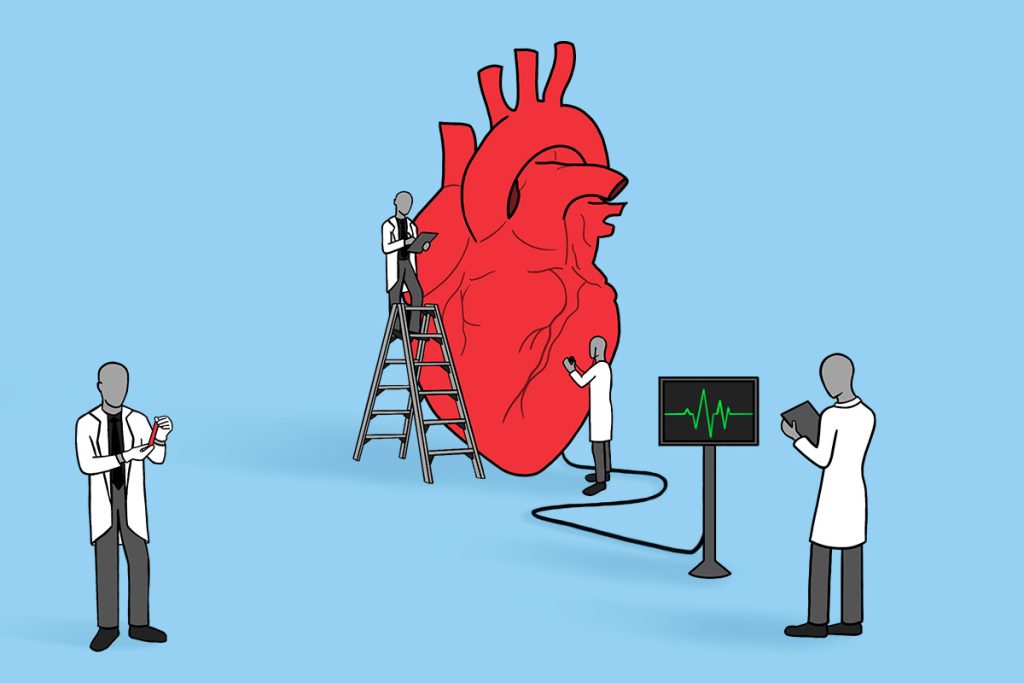
Keeping your heart healthy carries many benefits. In addition to reducing your risk for conditions like heart disease, stroke, and peripheral artery disease, a healthy heart can also give you more energy and even improve your mood.
Like any organ, our heart’s health is affected by our habits and decisions. Here are three tips on how to take care of your heart.
- Determine Your Risk
“At the very least, you should check your cholesterol and blood sugar levels and measure your blood pressure,” said Viet Le, PA-C, Associate Professor of Cardiovascular Research and Preventive Cardiology PA at Intermountain Healthcare and adjunct faculty in the Rocky Mountain University of Health Professions’ (RMU) Master of Physician Assistant Studies program. “This information can be used to calculate your ten-year risk score, a percentage that estimates your risk of having a cardiovascular event (ex. heart attack, stroke, or peripheral arterial disease) within the next ten years. If your score crosses the threshold of 7.5 percent for a ten-year period, it is recommended that you lower your lipids with cholesterol medicine such as a statin.”
In addition to cholesterol and blood sugar levels and assessment of blood pressure, other tests, such as a CT scan for coronary disease, as well as other cardiovascular disease screenings, can provide further information about your heart health.
- Incorporate Physical Activity
“Many people often think of physical activity as a drudgery, limited to running or going to the gym,” Le said. “In reality, physical activity can be anything that gets your heart rate up and your body moving. You should have fun! Anything you find fun that includes moving your body, do that!”
Consistent physical activity not only improves heart health, but also helps prevent many long-term illnesses and diseases that can affect our heart in the future.
“Exercise is something that helps us later,” Le said. “It’s like investing for retirement, but being able to use the cash now too.”
Despite these benefits, many of us fail to realize the long-term health consequences that can result from a lack of physical activity.
“When it’s so far off, it is hard to see,” Le said. “To say ‘I will be decrepit’ or ‘I will be chronically ill’ is difficult to imagine; we often just don’t see that now.”
- Develop Healthy Habits
“The data suggests that 70 to 80 percent of cardiovascular events can be delayed by simply living a healthier lifestyle,” Le said. “We often make choices that are convenient to our habitual behavior; however, those choices are not always the healthiest.”
Poor choices regarding smoking, spending a large amount of time sedentary, and eating unhealthy foods all culminate over time into some of the chronic conditions that negatively affect our heart health. Preventative measures can be taken now to prolong the healthy periods of our lives. However, replacing unhealthy behaviors with healthy ones is often daunting.
“Th ese are scary behavior changes that are difficult to make,” Le said. “Work within whatever is available to you. Examine how you are living and design good behaviors into your day instead of focusing on any one food or activity that won’t fit.”
Determining your risk, incorporating physical activity, and developing healthy habits are the basis for maintaining a lifelong healthy heart.
While all heart conditions cannot be entirely prevented, these daily decisions can be the difference between experiencing prolonged health or premature illness.
“We can’t avoid death, but we can optimize life and how we experience health while we’re alive,” Le said.
For more information on heart health, listen to this episode of the RMU Health Advantage podcast series.



